Let’s discuss several key strategies that will help you Forster independence in babies as you introduce them to the Montessori philosophy. Montessori education extends its principles from birth, offering techniques to nurture independent growth in babies. The prepared environment is pivotal, with spaces designed to be safe, accessible, and uncluttered.
Low shelves, reachable toys, and floor beds promote exploration and self-directed engagement. Simplifying the environment with a few developmentally appropriate toys, rotated regularly, aids focus and decision-making skills.
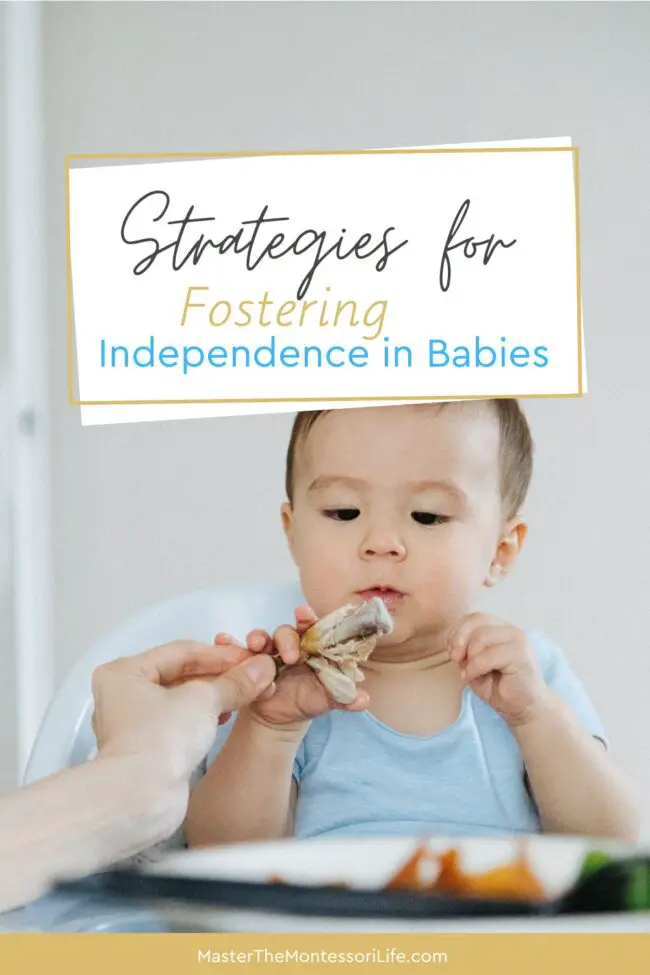
Following the baby’s lead is crucial; observing their interests and allowing self-directed activity fosters autonomy and cognitive development. Providing sensory toys like textured fabrics or wooden rings enhances hands-on learning and fine motor skills.
In daily routines, involving babies in caregiving activities, such as diaper changes, builds responsibility and control. Encouraging self-feeding with easy-to-grasp foods and child-sized utensils supports independent eating. These daily practices integrate seamlessly with Montessori philosophies.
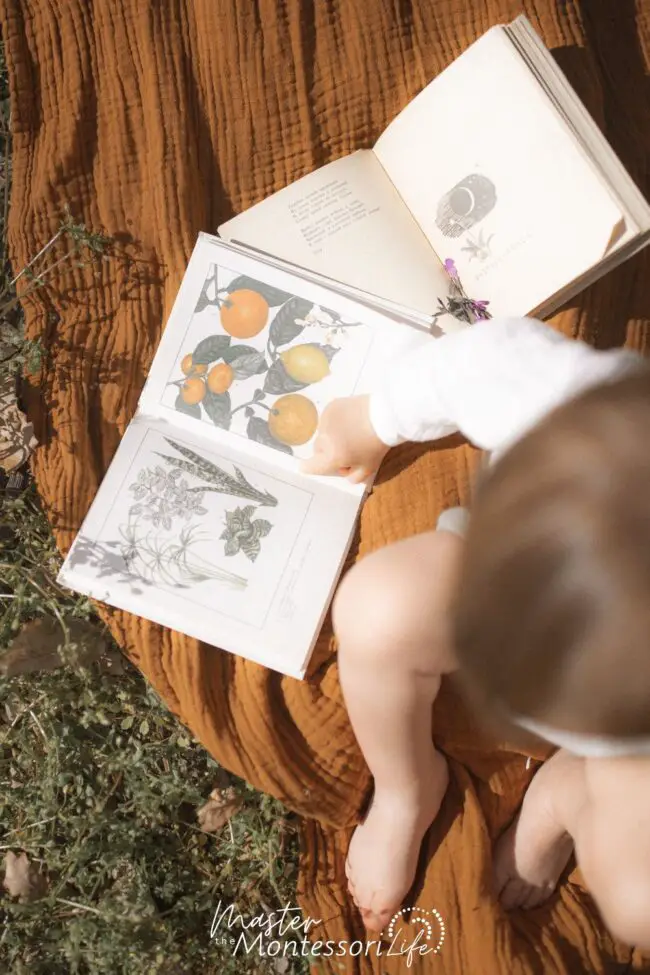
Respect and trust are foundational in this approach. Parents and caregivers should trust in the baby’s capability to learn and solve problems independently, offering support only when necessary. Communication should be respectful and clear, even if the baby cannot fully understand, to build a sense of trust and value.
By thoughtfully incorporating these strategies, parents and educators can help babies develop confidence, problem-solving skills, and a positive self-image. The Montessori method ensures these foundational skills are carried through their educational journey, fostering a lifetime of self-reliance and curiosity in learning.
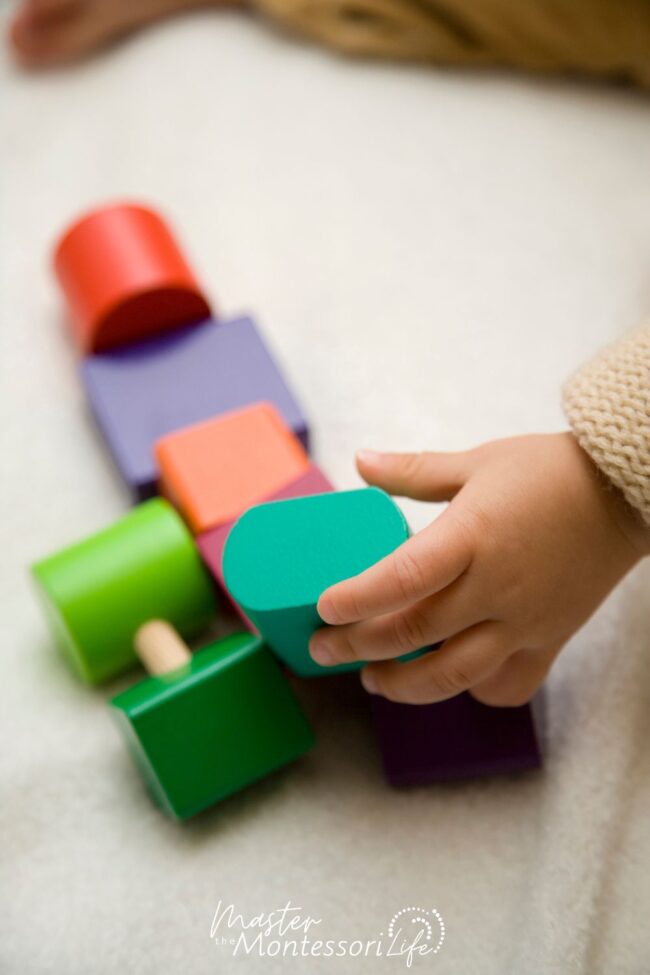
Give your baby the gift of independence and watch them flourish. So, it is essential to continue implementing these strategies as your child grows and develops. As they become more independent, allow them even more freedom to make choices and decisions for themselves. This will help foster their self-esteem, problem-solving skills, and overall development.
Remember that fostering independence in babies is a gradual process and requires patience, consistency, and a supportive environment. By embracing Montessori principles from birth and continuing to implement them as your child grows, you are setting the stage for a lifetime of self-reliance and curiosity in learning. Watch with joy as your little one becomes an independent, confident individual!
Conclusion
So, let’s continue to nurture their independence by providing them with the tools, opportunities, and support they need to thrive. Together, we can help create a brighter future for our children. So, let’s embrace Montessori principles and watch as our babies blossom into capable, independent learners! Keep exploring and learning with your child, knowing that you are laying the foundation for a lifetime of success. Happy parenting!
You might also enjoy these relevant topics:
- Montessori from Birth: Why Start from Day One
- 10 Essential Montessori Toys for Your Baby’s First Year
- The First Year of Life: Developmental Stages and Key Milestones
- How to Start doing Montessori with your Baby
- A Comprehensive Montessori Guide for New Parents
- Strategies for Fostering Independence in Babies
Montessori Wooden Baby Toy Set – 6 Pieces of Rattles, Push Car and Newborn Toys for PgUp Baby Play Gym Wooden Baby Gym with 7 Toys, Foldable Wooden Play Gym Frame Hanging
PgUp Baby Play Gym Wooden Baby Gym with 7 Toys, Foldable Wooden Play Gym Frame Hanging hahaland High Contrast Baby Flashcards – Black and White Infant Baby Cards 0-6 Months Tummy Time
hahaland High Contrast Baby Flashcards – Black and White Infant Baby Cards 0-6 Months Tummy Time MORITECK Spinning Drum, Montessori Toys for Babies 6-12 Months, Infant Kids Developmental Wooden Toy for Boy
MORITECK Spinning Drum, Montessori Toys for Babies 6-12 Months, Infant Kids Developmental Wooden Toy for Boy Montessori Play Kit for 0-6 Month Baby Tummy Time Interactive Toys Baby Brain Development Toys Rattle
Montessori Play Kit for 0-6 Month Baby Tummy Time Interactive Toys Baby Brain Development Toys Rattle Montessori Babies
Montessori Babies
- Transitioning Your Nursery to Montessori: A Smooth and Effective Approach
 Transitioning your nursery to Montessori is easier than you think. Simply follow the 3 main tips that I will give you here and you will have a Montessori nursery for your little one in no time!
Transitioning your nursery to Montessori is easier than you think. Simply follow the 3 main tips that I will give you here and you will have a Montessori nursery for your little one in no time! - What Dr. Maria Montessori is Best Known For
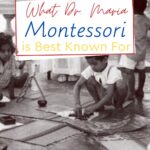 I got to see it in practice and was fascinated. That is when I started to research what Dr. Maria Montessori is best known for.
I got to see it in practice and was fascinated. That is when I started to research what Dr. Maria Montessori is best known for. - Embracing Montessori Principles at Home during Baby’s First Year
 Applying Montessori principles at home is wonderful. You and your baby will love it.
Applying Montessori principles at home is wonderful. You and your baby will love it. - The Life Cycle the Montessori Way
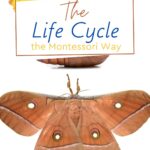 Understanding the life cycle the Montessori way is an essential aspect of teaching children about nature and their environment.
Understanding the life cycle the Montessori way is an essential aspect of teaching children about nature and their environment. - The Montessori Baby: Fostering Independence from Birth
 Fostering independence from birth is possible and before you think it means letting your baby “tough it out,” read on to find out what that really means.
Fostering independence from birth is possible and before you think it means letting your baby “tough it out,” read on to find out what that really means. - Montessori Sensorial: The Binomial Cube
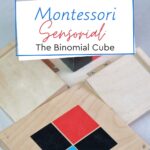 In this blog post, I’m going to be introducing the Binomial Cube, a phenomenal Montessori Sensorial tool as well as an introduction to Algebra.
In this blog post, I’m going to be introducing the Binomial Cube, a phenomenal Montessori Sensorial tool as well as an introduction to Algebra.



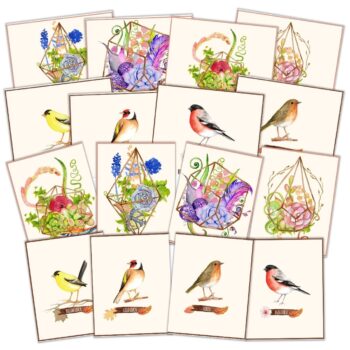

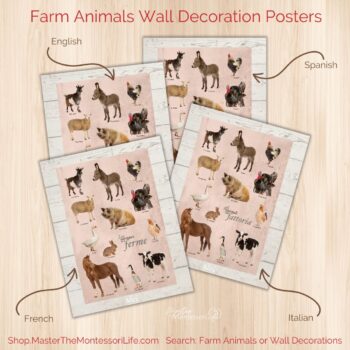
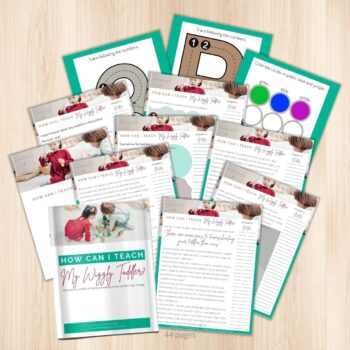
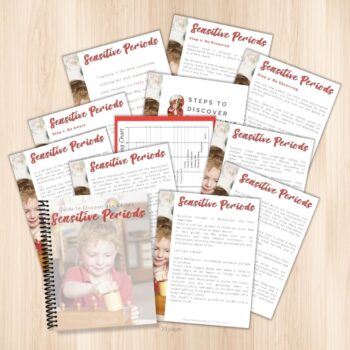









Leave a Reply